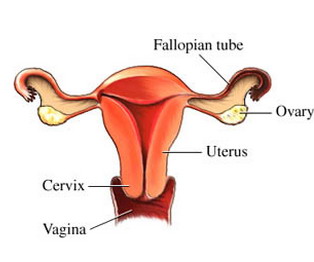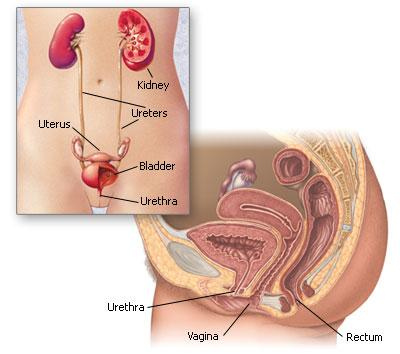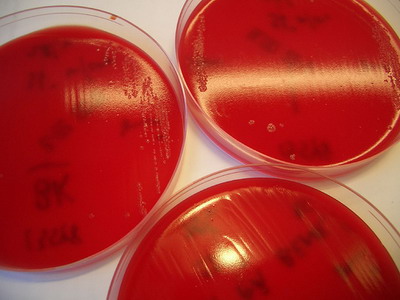Symptoms of Gonorrhea
Gonorrhea is caused by bacteria and it is sexually transmitted through bodily fluid like semen, saliva and blood.

The common infection happens in the cervix, urethra, anus and throat. Mostly this infection is common in the age of 25 to 30 years.
Now the disease is under control by the availability of good antibiotics. About 95 to 99% of the infected people are cured by effective antibiotic treatment.
Infact, most of the women, about 50% of the infected women does show only a few or even no symptoms of gonorrhea at all. Some of the women sufferer think the symptoms of gonorrhea for a severe or mild bladder symptoms and their selves mistaken it for an ordinary urinary tract infection. More over, in women, the symptoms are very difficult to identify. But men are almost developing symptoms of gonorrhea swiftly and prominently.
A number of areas are affected by infection and it depends upon the nature of contact the person had and period how long he or she had the contact. Generally, the symptoms appear between 2 to 10 days after the infection but in several cases the delayed symptoms appear even after 30 days after infection. The cervix is the prime organ that is affected in women by this sexually transmitted disease. This can also spread to other parts like uterus and fallopian tube if untreated.
Women affected with the infection of cervix, they have abnormal bleeding between menstrual period, vaginal discharge, burning vagina, bleeding after sex including frequent and painful urination. These are symptoms in the early stage of the disease and the later stage comprises of symptoms of nausea, vomiting, fever and bleeding.

As in women, men also have the symptoms of gonorrhea such as frequent and painful urination (urine with blood) along with swollen testicles if affected in urethra. Men usually have discharge from penis in white, yellow and green color. The groin area is swollen and penis looks tender with change in color from usual to red.
Commonly the symptoms of pain, swelling and discharge occur when throat, rectum and anus is affected in both the sexes. When the rectum and anus is affected, itching in the anal area, discharge, painful bowel movement and bloody stool appears. When the throat is affected, sore throat is prominent with the discharge of pus in the tonsils. These infections are able to spread fast in to other organs if left untreated.
Several complications are arising by this disease when it is ignored or left untreated. The untreated gonorrhea always affect other organs primarily the uterus and fallopian tubes and leads to pelvic inflammatory disease (PID). This PID is usually affecting fallopian tubes resulting in infertility in the later stage of the disease. The further damage of this tube causes ectopic pregnancy which is a condition where the fertilized egg grows outside the uterus and in fallopian tubes and thereby it causes dangerous life threatening events. About 20% of the women infected in cervix are affected by PID.
Men are also developing infertility, when gonorrhea is left untreated and the testicles are swollen and they develop infertility in the later stage.
Men and women who have the symptoms of gonorrhea should undergo test to confirm the disease as soon as possible since this disease are likely to contract Chlamydia or HIV that causes AIDS. Earlier testing for gonorrhea symptoms are very much important in case of pregnant women since this disease is very easily able to pass on to the growing fetus.

The centre for disease control (CDC) reports that every year about 600,000 new cases with symptoms of gonorrhea occur in the United States. Since this disease does not show any earlier symptoms it affects most of the women’s reproductive health easier. The bacteria causing this disease are called ‘NEISSERIA GONORRHEA’ and this also called as clap. This bacteria is having tendency to reside in moist areas of the body like vagina, penis, throat, eyes and rectum. Infections easily occur when one of these moist areas is contacted. All forms of sex like rectal, oral and vaginal are causing the spread of the bacteria. The spread of this disease is passed on to fetus and newborn child through their mother already infected with gonorrhea.
Later stage complications:
Both male and female sufferers of gonorrhea are liable to undergo a condition of joint called arthritis (gonorrheal caused arthritis) which includes the symptoms in knees, ankles and wrists. This complication includes a permanent pain and swelling in the joints accompanying with iritis or conjunctivitis. The second important complication is bacteremia, a condition in which the blood contains the bacteria with the symptoms of fever, chills and joint pains.
The treatment in practice:
- Cefimime 400mg orally in a single dose.
- Ofloxacin 400 mg orally in single dose
- Azithromycin 1grm orally in a single dose
- Doxycycline 100 mg orally twice in a day
- Ciprofloxacin 500 mg orally in a single dose.
Prevention of the spread of this disease is possible by providing condoms and by practicing safe sex routinely.

i am 53..i have not had many sexual partners but believe i could have gonorrhea,i suffer with itchy eyes occasionally accompanied by a small spot which itches and appears to be a small stye,i have been diagnosed with arthritis and i do have chronic joint and bone pain,i do not know when i contracted this if i do have it,,i recently suffer with a small blister between my inner leg and outer vagina which bursts and i do get blood and puss oozing out which does smell,can i still get a cure if i have contracted this disease or is it too late, can it be picked up at the std clinic,the last time i was tested was 10 years ago and they said i was clear,i have only had 3 partners in 10 years prior to that two long term marriages and i only slept with 3 men between 16 and 18 when i married my first husband